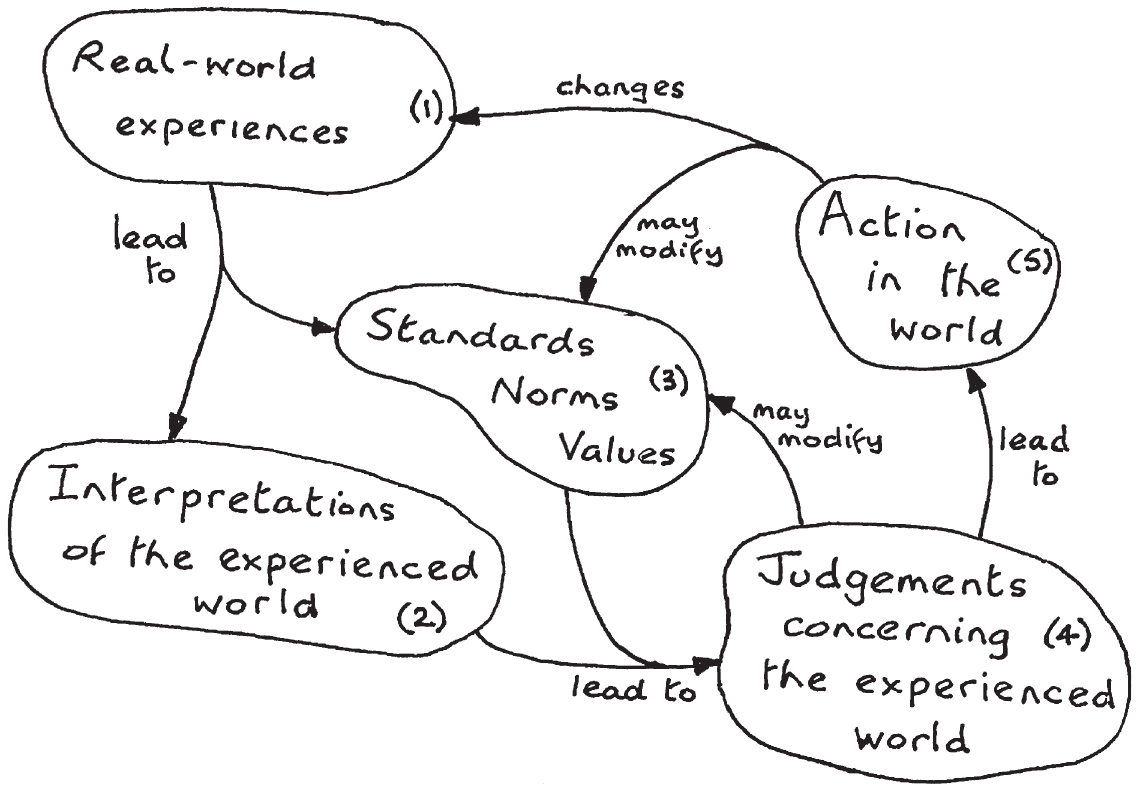Sir Geoffrey Vickers preferred words over diagrams. so it was Peter Checkland (and his student Alex Cesar) who aimed to make sense of the epistemology of appreciative systems.
– begin paste –
- Figure 1. An epistemology for making sense of the (groundless) social process
In this paper I present a simplified version of the Checkland/Casar model in order to try to convey the very essence of Geoffrey’s most important legacy—for the notion of ‘appreciation’ underlies all his work in the many fields to which it is relevant. This model is an epistemology which can make sense of the process by which we create the webs of significance that define and constitute for us the perceived world we inhabit.
In this model, both individually and in groups of various sizes, we gain experience of the world (1). These experiences stem from both new events and ideas in the world and also from previous perceptions, interpretations, judgements and actions.
They generate new interpretations of our perceived world (2) and the cycle continues on and on …
The real-world experiences, in our response to them, also help to generate our standards, norms and values (3), that is to say, the criteria of ‘good/bad’, ‘acceptable/unacceptable’ by which we make our judgements about the world. (Vickers sees norms as the ‘governing relations’ we currently take as given—though they too will change over time with new experiences and new interpreta- tions and judgements.)
Our interpretations and standards together enable us to make the judgements (4) which are a source of action (5) within the world. That action will both affect the current world and condition future experience in it, modifying over time our in-built readinesses to see certain features of our perceived situations as significant and to neglect (or not see) other features. Equally the action, and the judgements which lead to it, may help to modify the standards, norms and values which we have previously used. The whole cycle represents a continuous cycle of thought and action ‘carved out by our interests, structured by our expectations and evaluated by our standards of judgement’ (Vickers, 1972). This is the core of ‘the appreciative system’ (Vickers, 1965). [p. 288]
– end paste –
Reference
Checkland, Peter. 2005. “Webs of Significance: The Work of Geoffrey Vickers.” Systems Research and Behavioral Science 22 (4): 285–90. https://doi.org/10.1002/sres.692 .

